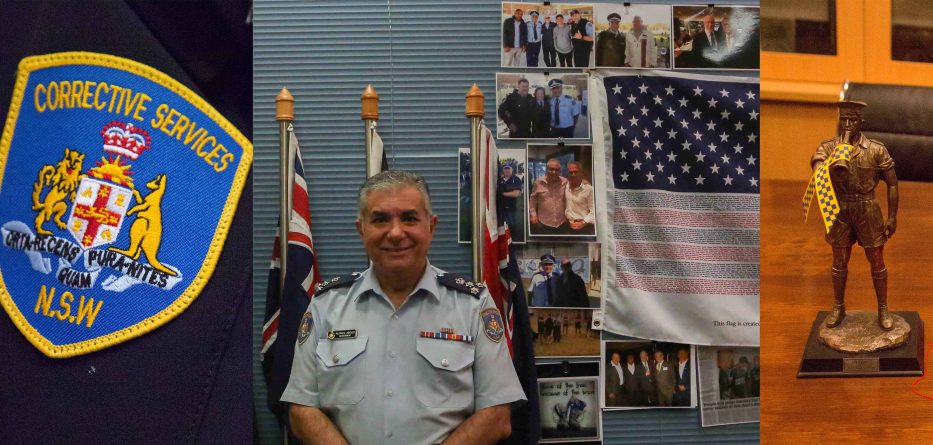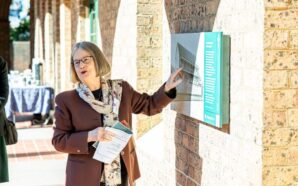Pat Aboud is Governor of Australia’s largest prison, Long Bay Correctional Complex, where he has been recognised for his trademark toughness and concern for the well-being of others.
His Parramatta childhood of faith, family and footy could not be more removed from his daily work dealing with some of Australia’s most hardened criminals.
Corrections staff members deal with convicted terrorists, murderers and more, every day and Governor Aboud has been recognised for his work to reform the lives of inmates and care for his staff.
“I have a great team of staff at Long Bay and supportive Senior Executive Officers, from the Commissioner, Assistant Commissioners and Directors who have enabled me and my team to accomplish these milestones.”
“They are good, decent people, they have a tough job to please government expectations.”
Governor Aboud’s parents still actively serve others and have been honoured for their generosity to the Church and community.
RELATED: Bishop Vincent washes the feet of prisoners
RELATED: Long Bay Prison Governor: Trust everyone “Just don’t trust the Devil within”
“And that comes from the upbringing from my parents, both alive, still looking after other people. They worked hard all their lives.”
“I’m very proud of my parents, family and colleagues. That’s where my motivation comes from.”
Governor Aboud is also proud to be part of the family of Lebanese Catholics from the northern village of Kfarsghab, in the Qadisha Valley.
“There are close to 20,000 in Australia. My father was born there. My whole family have come from there.”
Many clergy and religious have come from Kfarsghab. Most Rev Gerard Hanna, Emeritus Bishop of Wagga Wagga, retired Diocese of Parramatta priest Fr Paul Hanna and Monsignor Shora Maree from the Maronite Eparchy are among the many descended from Kfarsghab, Governor Aboud said.
Governor Aboud has close relatives who had religious vocations.
“My Dad’s two sisters were in the St Therese Order, Sr Monica and Sr Joan of Arc. Nuns all their lives at the convent in Beirut, they were nursing nuns,” he said.
Priests and religious form an important part of Governor Aboud’s work to reform inmates in the Chaplains program.
“I’m a big supporter of the chaplains. They make our job a lot easier for staff and inmates,” he said.
These include Catholic chaplains, such as Bishop Terry Brady, Fr Peter Caroll, Fr Geoffrey Abdullah and Sr Therese.
Islamic Imams, Uniting Church, Anglican and other chaplains also greatly support their work, he said. Governor Aboud praised Pastors Garry Ring and Colin Sheen.
“We have a great team of chaplains with in Corrections NSW,” he said.
RELATED: Catholic Prison Chaplains National Gathering
RELATED: ‘Reaching Out, a Message for Prisoners’ during the Year of Mercy
RELATED: Bishop Vincent celebrates Mass with prisoners
Governor Aboud has also been recognised for his work in Indigenous programs and the Indigenous football program.
“There are currently three inmates who play with the Redfern All Blacks A Grade team. They have managed to win the Grand Final, three years in a row at Redfern Oval,” he said.
“These men just work, they are not paid for a win or loss, they just do it for their community.”
“Dean Widders is the Captain and Coach of the Redfern Allblacks. He played for Parramatta, South Sydney, Eastern Suburbs and Castleford Tigers.”
“A truly inspirational man, a quiet achiever.”
“I have a great team of correctional officers who have inspired this program and without their help this would not have happened,” he said.
This work with the community also engages young people and families to think about their future direction.
While receiving a gaol sentence could be the result of a single mistake, Governor Aboud said, caregivers had often neglected young offenders.
“Most parents weren’t home for young offenders. Not home for a meal with their family,” he said.








